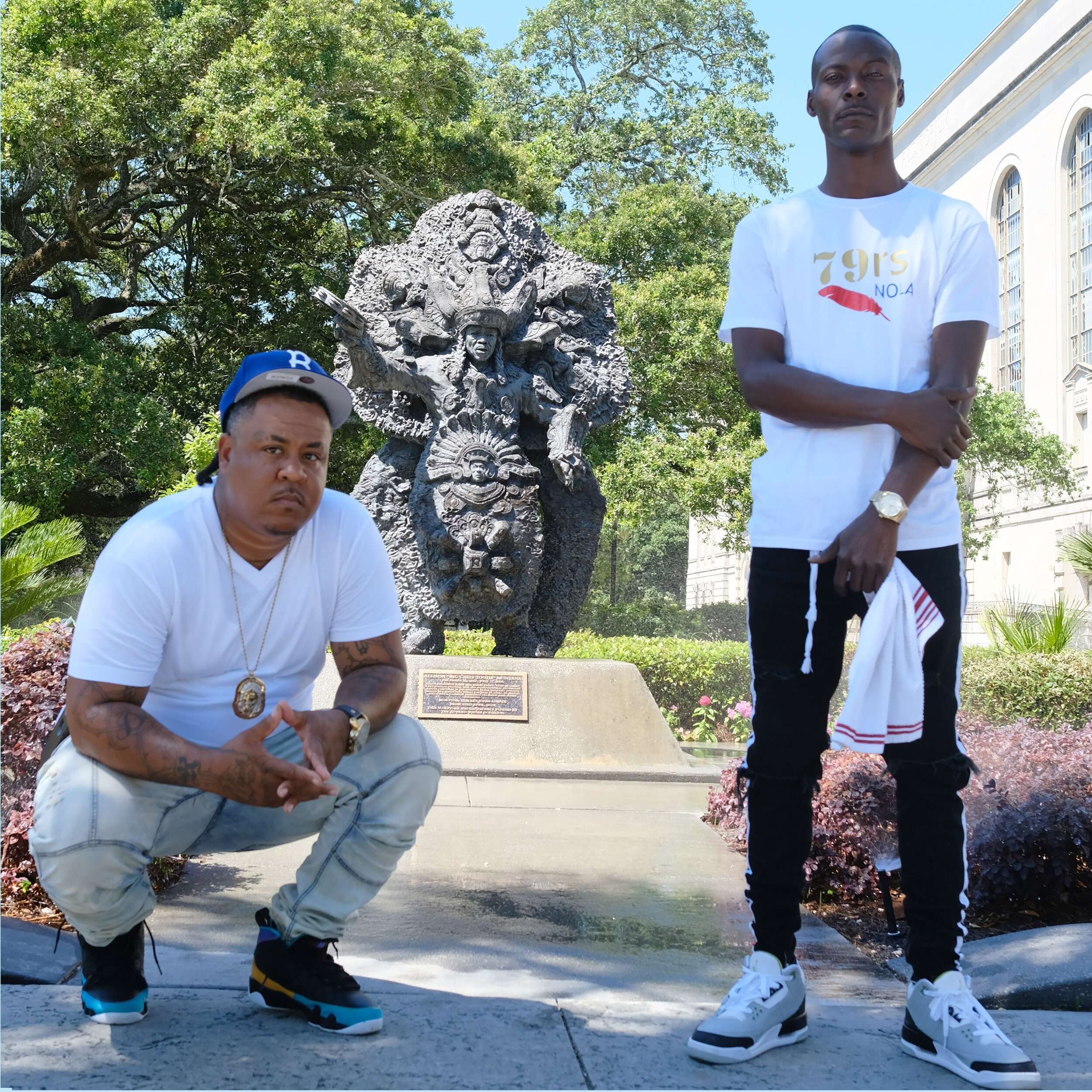EWF Bring Kamasi Washington to Jazz Fest

The highlight of a good Friday at Jazz Fest was an unlikely pairing that made perfect sense.
[Updated There are limits to what I expect from Earth, Wind & Fire. They’re incredibly reliable performers who have maintained their musicianship over the years, but ambition seems, well, unnecessary. Stretching means reaching for a song that peaked at number eight, not going for an actual deep cut, but they went deep a few times for “Jupiter,” “Devotion,” and “Got to Get You,” as well as lesser hits “Saturday Nite” and “Serpentine Fire.” The biggest surprise of the set came when they brought out Kamasi Washington. Washington occupies a space the band did when it cut the soundtrack to 1971’s Sweet Sweetback's Baadasssss Song, and even though though Washington’s more popular now than they were then. Wind & Fire has become a hit machine, but the same cosmic Afrofuturism that shapes Washington’s music shapes theirs, just in shinier form.
The performance itself was clearly improvised and forced the band to employ skills it hadn’t required for decades. Washington played his soprano sax in his more cosmic, Pharaoh Sanders mode, which the band picked, first with Philip Bailey on thumb piano and light percussion from EWF lifer Ralph Johnson. The band never challenged Washington or nudged him in new directions, but they worked with him ably, growing into a cosmic groove that was its own pleasure, and that grew into something more assertive and more clearly on the band’s turf. When the piece began to evolve into a funk jam, Washington let the moment come to a proper end
Those who want to see Washington can do so all weekend at One Eyed Jacks.
- Americana singer Margo Price made her Jazz Fest debut Friday on the Sheraton New Orleans Fair Do Do Stage, and like Dale Watson just about 24 hours earlier, she flew the flag for the brand of country remember fondly. Like Watson, she made her musical past and taste central to her set and covered “Me and Bobby McGee” and “Ain’t Living Long Like This.” Both choices are a slightly obvious, but her clear passion for each made them work anyway, and it was pleasantly telling that she connected with them not through Janis Joplin and Gary Stewart but Kris Kristofferson and Rodney Crowell—the songs’ writers.
Her own songs lived in a world defined by those tracks, as if they were written and performed by the smartest person at the bar, and her band shared that vibe. In most ways, they hung with the honky tonk tried and true, but as one person in the crowd observed, someone needed to limit the keyboard player’s options. Somewhere Friday afternoon in a British library alive with floating dust motes, Yes’ Rick Wakeman looked up from a tome and quietly said, “I won.”
- In recent years, Mardi Gras Indians have felt like a dead end at Jazz Fest as Indians recreated classic songs with a stronger connection to Treme than Treme. Too often, the songs seemed like obligations performed the way those before them did. 79rs Gang pulled together members of 7th and 9th ward gangs to create the first genuinely funky Mardi Gras Indian band in a long time. The Golden Arrows brought post-Hendrix psychedelic funk to Indian chants when June Yamagishi was in the band and set the template for the Indian band. The 79rs Gang updates the effort with sounds shaped by DJ culture as the core band draws eclectically from funk ideas made to support vocalists. As such, their “Beats Electric” was dubwise, and “Wrong Part of Town” was equal parts threat and party.
The Indians arrayed across the front of the stage play bass drum and timbales in addition to tambourine, and Jermaine Bossier draws as effectively from hip-hop as he does from decades of Indian vocalizing. The only thing about the group that makes me wonder is that they’ve now recorded twice without the band. Why keep such an asset on the shelf?
- … and Wilco played Wilco-ly.
Updated May 7, 6:25 a.m.
The notes on Margo Price, 79rs Gang, and Wilco were added after initial publication.






